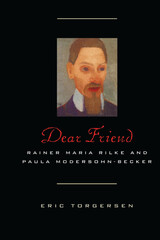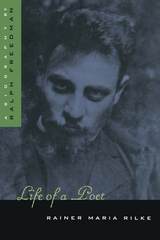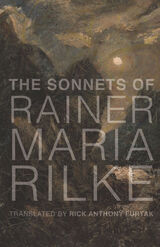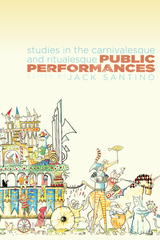


Rainer Maria Rilke was first published in 1958. Minnesota Archive Editions uses digital technology to make long-unavailable books once again accessible, and are published unaltered from the original University of Minnesota Press editions.
The German poet Rainer Maria Rilke died in 1926, and interest in his poetry has been mounting ever since. The winds of fashion, taste, or personal bias have shifted several times to affect his audience of readers. There have been, according to previous Rilke criticism, not one but many Rilkes. Thus the critics have pointed to the "early Rilke" and the "late Rilke," to the Prague poet, the Paris poet, and the Muzot poet.
Now, in a fresh approach yet one which takes full cognizance of the varying viewpoints and conflicting purposes of earlier criticism, Professor Wood carefully examines Rilke's entire poetic output. The major concern here is with the poetry itself rather than with the biographical, psychological, or philosophical questions which have dominated most previous criticism.
Through a close textual analysis of the poems, Professor Wood demonstrates that the whole body of Rilke's writing, from beginning to end, is thoroughly interrelated and interdependent. As he points out, many more published materials, both posthumous verse and correspondence, are available now than in the earlier periods of Rilke's fame, a situation which adds significance to this new evaluation.
In addition to analyzing Rilke's own poetry, Professor Wood shows the links between Rilke and such contemporary poets and writers as Gide, Proust, T.S. Eliot, and Yeats.
The excerpts quoted from Rilke's poetry are given both in the original German text and in standard English translation.

In an expanded collection of Rilke’s sonnets, Rick Anthony Furtak not only makes this lyrical masterpiece accessible to the English reader, but he proves himself a master of sorts as well. His introduction that elaborates on Rilke’s marriage of vision and voice, intention and enigma, haunted companionship and abandonment is a stand-alone marvel for the reader. Furtak’s praised translation of Sonnets to Orpheus (University of Chicago Press, 2008) is surpassed in this much broader collection of verse that also includes the original German text. It is Furtak’s great achievement that Rilke resonates with the contemporary reader, who uncertain and searching wants to believe that the vision of existence can mirror much more than his own consciousness. In his feat of rendering Rilke in English, contextualizing the philosophical meanings of verse, and presenting literary romanticism, Furtak provides a formidable contribution to the vindication of true poetic voice.
READERS
Browse our collection.
PUBLISHERS
See BiblioVault's publisher services.
STUDENT SERVICES
Files for college accessibility offices.
UChicago Accessibility Resources
home | accessibility | search | about | contact us
BiblioVault ® 2001 - 2024
The University of Chicago Press









